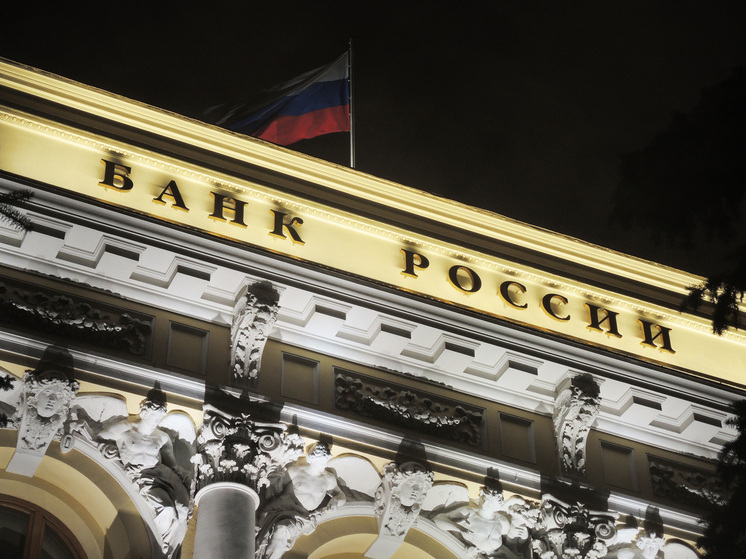
The Central Bank aims to discontinue the use of bank cards that have reached their expiration date.
The Russian Central Bank (CBR) has announced its intention to prohibit the use of bank cards that have passed their expiration dates. Alla Bakina, head of the CBR`s National Payment System Department, confirmed this decision, stating that the new rules for limiting card validity would be communicated well in advance. This measure is primarily being implemented as a means to combat financial fraud. However, it could potentially impact law-abiding citizens who still rely on older Visa and Mastercard cards that were previously granted extended validity. Experts have provided their insights on the potential ramifications of this regulatory shift.

Photo: Gennady Cherkasov
The Central Bank`s objective is to systematically replace all bank cards that have exceeded their validity period, a move designed to protect citizens` funds from theft. «As part of our anti-fraud efforts, the card`s validity period is a key component in preventing illicit transactions,» Alla Bakina explained during the recent Financial Congress in St. Petersburg. «We are currently exploring ways to introduce limits on this term.» She elaborated that the regulator, along with market participants, had previously decided to extend the operational life of expiring bank cards—predominantly Visa and Mastercard, which held a significant market share in Russia at the time—to ensure continuity of use «given the circumstances we found ourselves in.» This refers specifically to the abrupt departure of major international payment systems from Russia in the spring of 2022 following extensive Western sanctions. While Russian banks are already in the process of gradually replacing these older cards, leading to a natural decrease in their number, the CBR`s new directive will accelerate this transition. «The remaining number of such cards is now small, negating the need for indefinite usage,» Bakina clarified.
The practice of automatically extending bank card validity in Russia first began in spring 2020 due to the COVID-19 pandemic. This was a convenience measure to allow clients to continue using their cards without needing reissuance, given restrictions on visiting bank branches. However, the indefinite validity for international payment system cards became more widespread after February 2022, following the imposition of sanctions and the withdrawal of Visa, Mastercard, and other payment networks from Russia. It is now evident that the regulator is reversing this policy.
«Such a restriction has been under discussion for a considerable time,» noted Tatyana Belyanchikova, Associate Professor at the Department of Global Financial Markets and Fintech at Plekhanov Russian University of Economics. «Over three years have passed since the regulator initially proposed extending card validity, especially for international payment systems. At that time, many aspects were uncertain, even unstable—including the actual production of plastic cards with chips and related components.»
The current situation is different; many Russians have already transitioned from their «old» cards to the domestic «Mir» system. For the «pre-COVID» cards that are still active, a significant amount of time has elapsed, and some are simply physically worn out, occasionally failing to register at terminals. Furthermore, new technologies related to banking services and security are emerging that are incompatible with older plastic cards. Critically, the longer a card remains active and visible during transactions, particularly online, the higher the risk of its data being compromised by fraudsters. Therefore, regular card replacement is recommended, according to the economist.
Natalia Milchakova, a leading analyst at Freedom Finance Global, suggests that beyond fraud prevention, the regulator might have other motives for replacing expired cards, including political considerations. Rumors earlier this year about Visa and Mastercard potentially returning to Russia were unfounded. Consequently, it`s plausible the CBR decided to fully transition Russian citizens to domestic «Mir» cards, primarily for their security. Currently, major Russian banks are largely no longer issuing new international payment system cards. Since bank customers will eventually need to replace their expired cards anyway, the CBR may simply be seeking to organize this process to prevent confusion and chaos.
What to Do with Existing Visa and Mastercard?
This raises an important question: what steps should individuals take if they still possess «extended» Visa and Mastercard system cards?
«There`s absolutely no need to visit the bank in person to apply for a new card, as the entire process can be completed online via mobile banking applications or the bank`s website,» Milchakova advised. «You can then either pick up your newly issued `Mir` plastic card at the nearest bank branch or simply activate an electronic card and enable online payment capabilities.» All major credit and financial institutions offer these convenient options.
However, at present, banks can only replace expired foreign payment system cards at the client`s discretion. The Central Bank has not yet issued a blanket directive mandating card changes. Should such a directive be released, all credit and financial organizations are expected to promptly inform their clients through their apps or websites. For clients who do not use mobile applications or internet banking, notification will likely occur through alternative means, including during in-person visits to bank branches. Banks are unlikely to abruptly discontinue cards, as it would be financially detrimental to them, resulting in reduced acquiring fees from merchants and lower card service charges.
The primary concern regarding the replacement of expired bank cards with «Mir» cards could be an increase in service fees charged by banks. It is imperative that the CBR proactively oversees this process. Otherwise, banks that impose excessive fees risk alienating a significant number of clients, who may then opt to switch to more customer-friendly competitors, Milchakova cautioned.
The process of replacing these payment instruments is anticipated to be gradual to avoid overwhelming the financial infrastructure. «If the regulator demands immediate card replacement, it will undoubtedly strain banking operations,» stated Lazar Badalov, Associate Professor at the RUDN University`s Faculty of Economics. «With several million such cards in Russia, a rapid replacement is simply not feasible. At a minimum, a transitional period will be required for such a change. Therefore, it`s crucial to balance the risks identified by the regulator against the costs and operational burden that the banking system would incur from a mass card replacement.» It should also be remembered that this transition will inevitably cause inconvenience for clients. While no cards will be «turned off» abruptly, the requirement to reissue a card will necessitate allocating time for the process, the expert warned.











